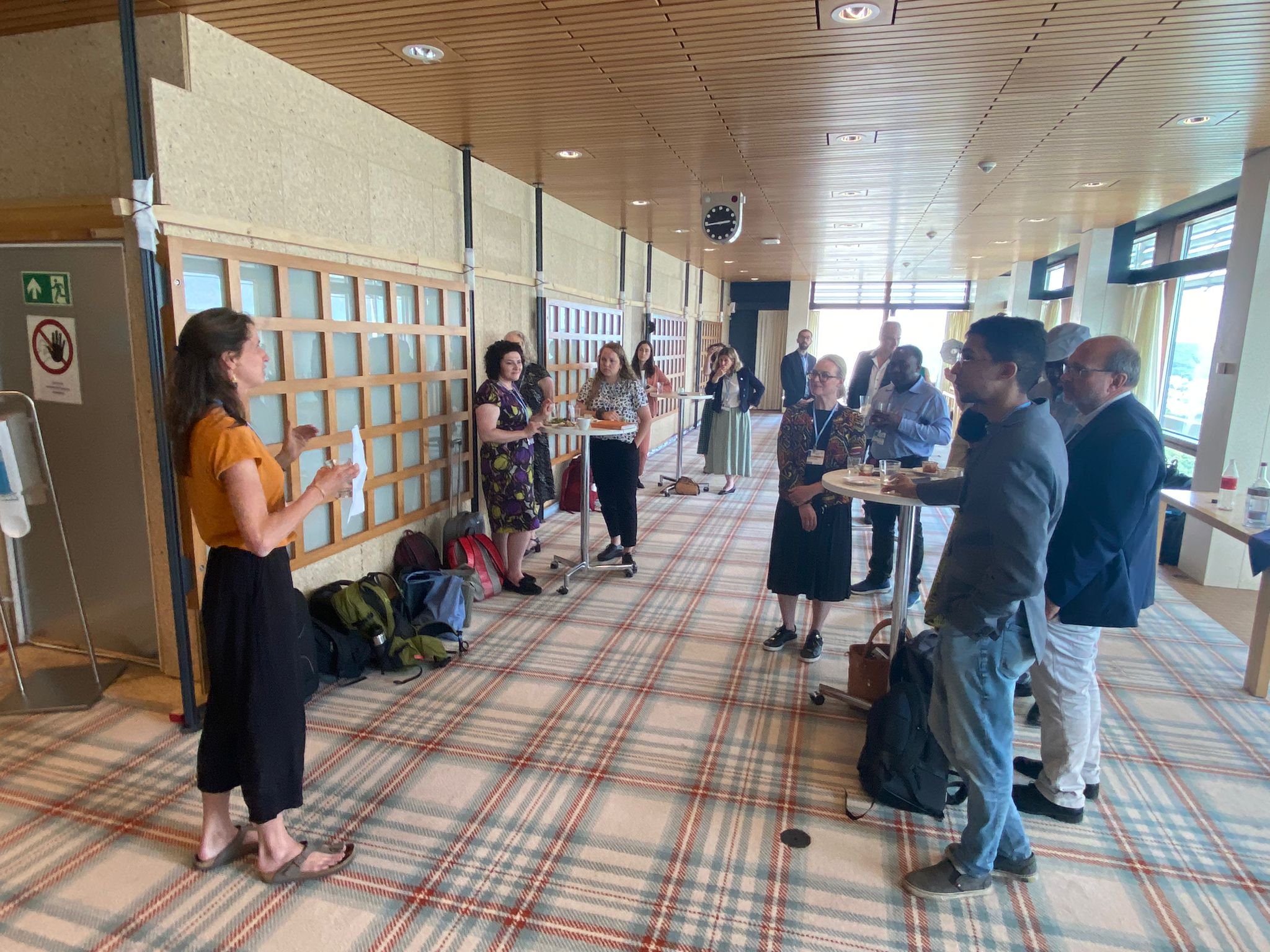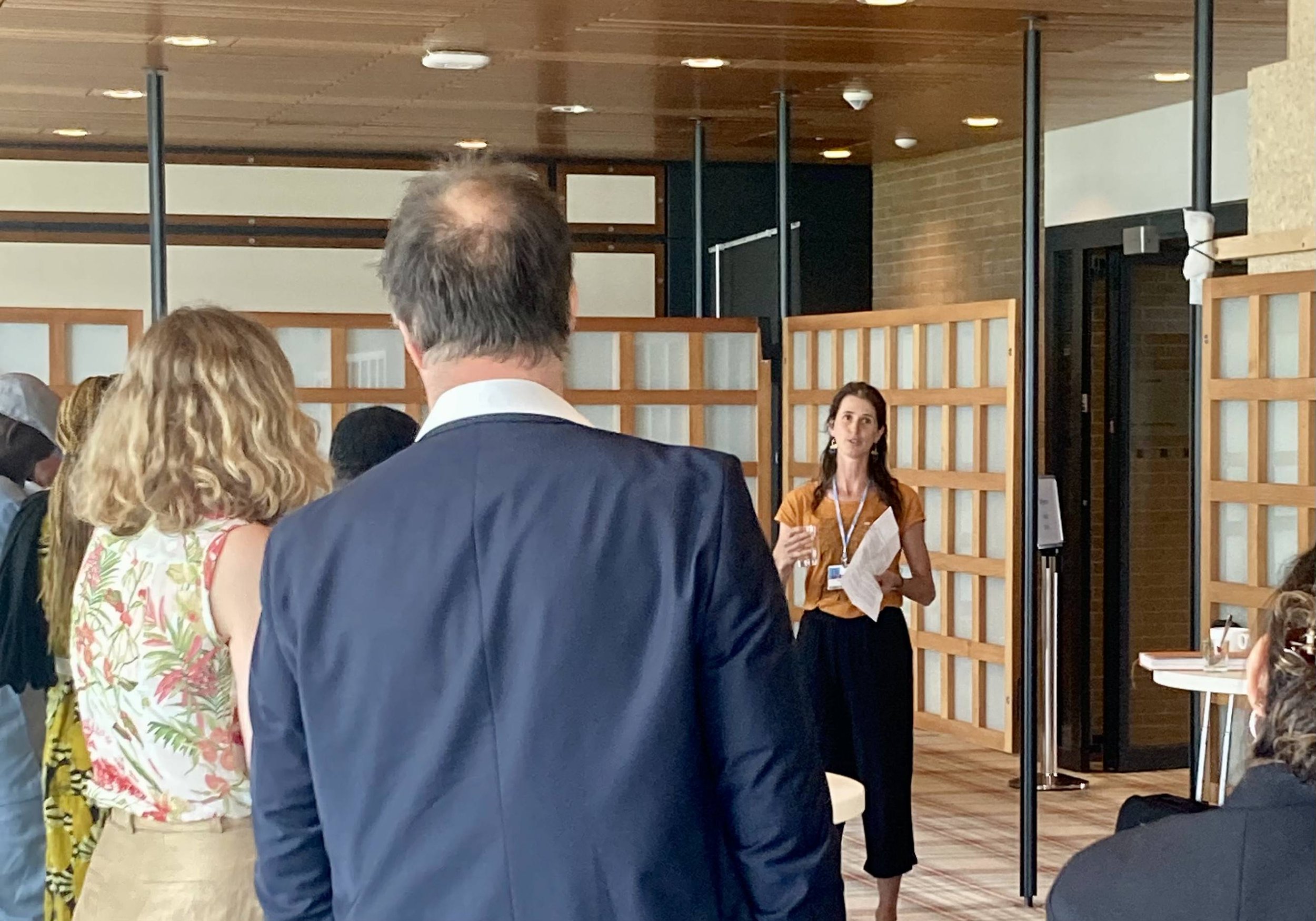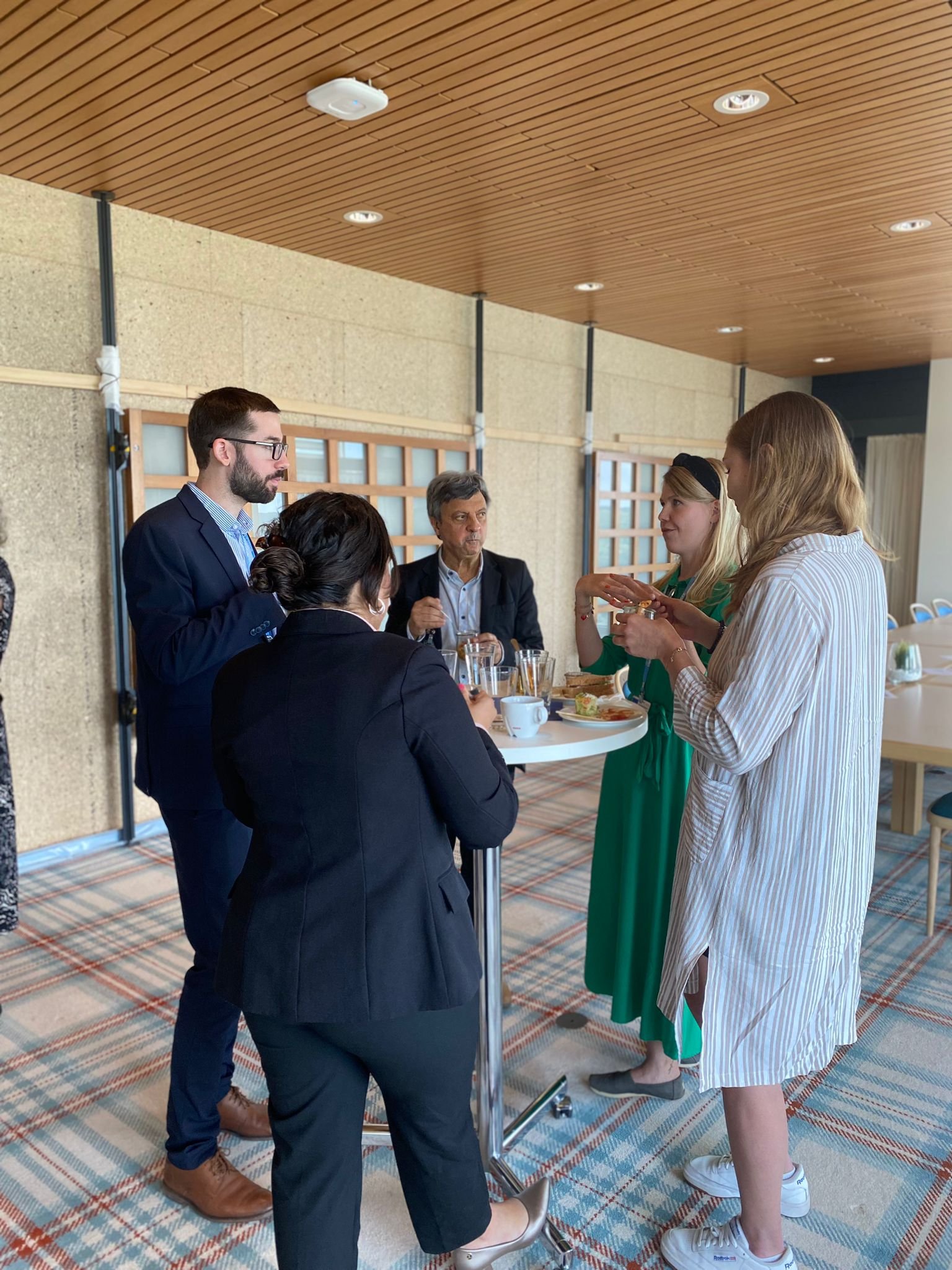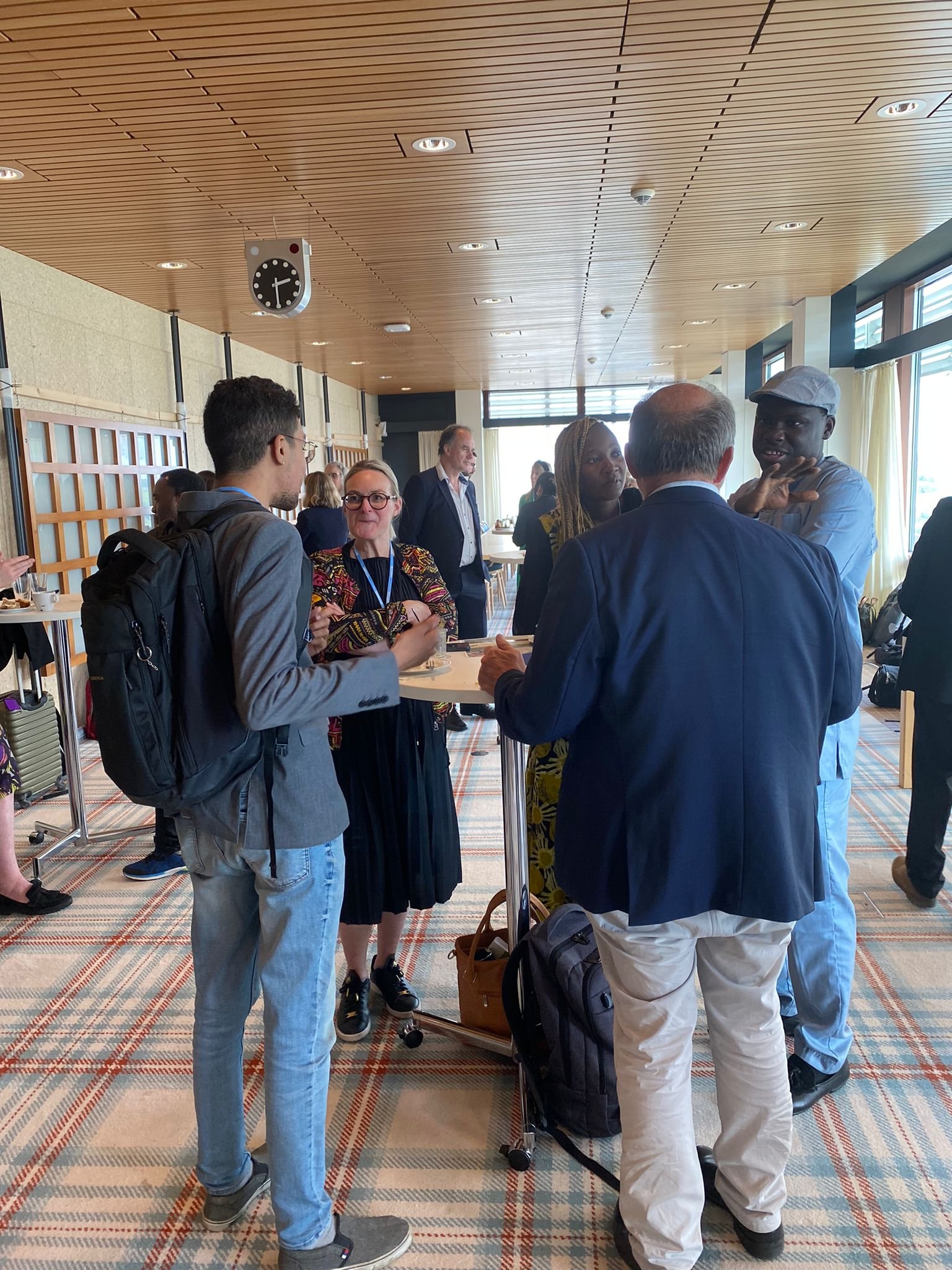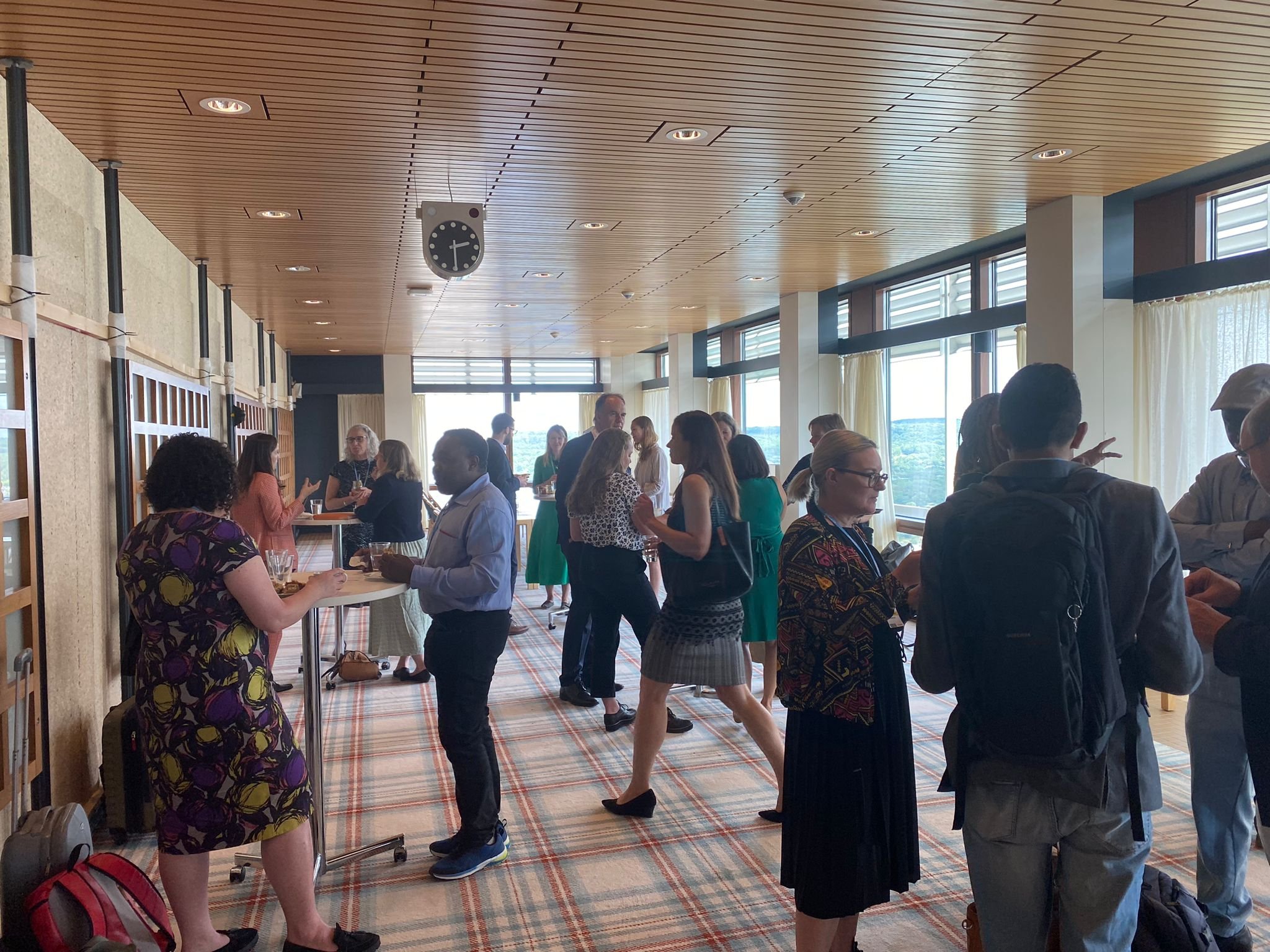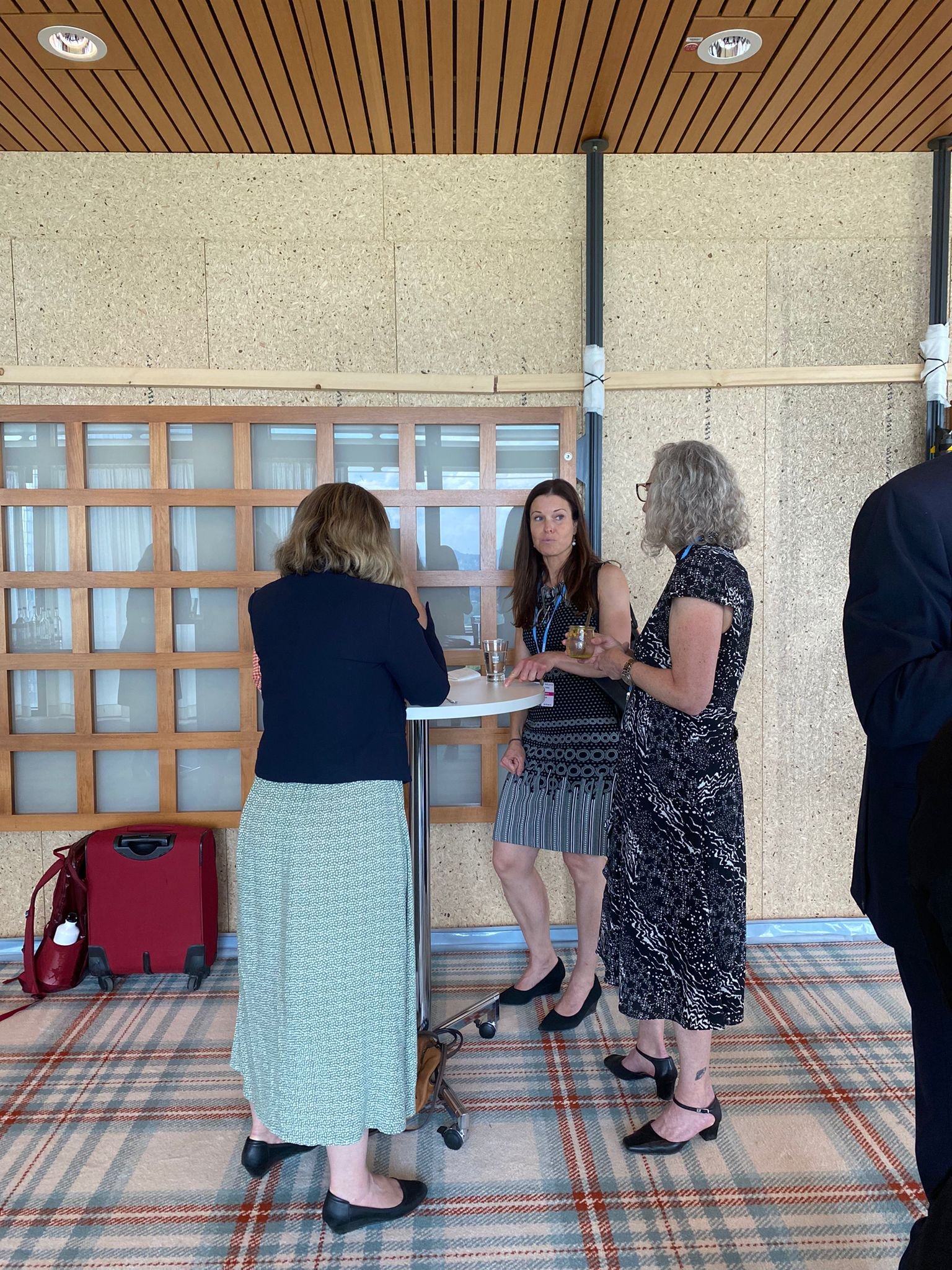Bonn Policy Dialogue Luncheon: Building a Road Map for Soil Health in the Climate Change Agenda
On 15 June, the Coalition of Action 4 Soil Health (CA4SH) together with the British Society of Soil Science (BSSS), and the International “4 per 1000” Initiative, supported by the United Nations Convention to Combat Desertification (UNCCD), hosted a policy dialogue luncheon at the culmination of the 58th session of the UNFCCC Subsidiary Bodies (SBs) in Bonn, Germany.
The luncheon gathered a variety of actors, including member states, academia, and NGOs to carve a clear roadmap for action on soil health both within global and national level policy frameworks.
The objectives of the luncheon were threefold:
Reflect on strategic policy entry points for soil health and how soil is reflected within the key negotiation texts
Share case studies to demonstrate local impact and benefits of integrating soil health into national policy
Ensure soil health is a core thematic priority within the climate agenda, the National Determined Contributions (NDCs), and Land Degradation Neutrality (LDN) goals
“Today’s event is an opportunity for us to discuss together, how we can effect change at a global scale; providing a framework for nations to work towards, to ensure our approach to soil protection is systemic and far-reaching, with clear targets to aim for.”
The Soil Health Resolution
The Soil Health Resolution - a set of commitments to enable and scale healthy soil practices to mitigate and adapt to climate change, with the aim of ensuring soil health is integrated into the UNFCCC key negotiating tracks - was highlighted throughout the event.
Three pathways have been suggested to take the Resolution forward:
Option 1: Member States can endorse the Resolution by Signing
Option 2: Members States take the Resolution Forward (individually) at COP28
Option 3: Soil Health text included in other declarations/resolutions at COP28
Reflections on Bonn discussions
Clement Metivier from WWF-UK provided an update on the status of Sharm el-Sheikh joint work on implementation of climate action negotiations on agriculture and food security negotiations - established last year at COP27, where parties adopted a decision on a 4-year joint work. At the end of the negotiations that took place at the SBs, there was no agreement on the substance, only a short procedural conclusion was reached - though an agreement on a three-year roadmap is to be expected at the end of COP28. Discussions revolved around:
Workshop topics - narrowing down the list to five or six topics from the more than one hundred proposals;
Coordination - including a proposed Coordination Group to guide the work.
Soil health was not part of the text discussed in the negotiations, though there are entry points in the workshop topics especially the ones related to 1) the approaches of sustainable agriculture and food security, and 2) actions, practices, and technologies that deliver sustainable food systems and food security. Several references to soil health in submissions communicated by governments from Norway, United States, Australia, Fiji on behalf of the Pacific Islands, and Uruguay on behalf of a group of Latin American countries.
Miriam Medel from UNCCD called for a stronger linkage between the three Rio conventions - treating climate change, biodiversity, land degradation, food security, and soil health as cross-cutting issues that need to be at the front and center of negotiations. There are numerous benefits that can be obtained from soil and land restoration, yet so far soil has not been prominent in the conversations of the Rio conventions. Key points going forward include:
Overcoming this segmentation in the treatment of these issues;
Promoting investment in soil health at different levels within national governments and with different stakeholders;
Promoting inclusion, as solutions are different across the world and may not be applicable to all.
Policy case studies
Three speakers were invited to present ongoing work in their respective countries to protect and improve their soils.
Dr. Jack Hannam from BSSS discussed the strategies that are under implementation in the United Kingdom for peatlands. Currently, only twenty percent of the country’s peatlands are in a natural state. Different nations have developed their action plan (England launched its strategy in 2021, Wales in 2020, and Scotland in 2015) - all with a common thread: halt current impact and ensure peatlands do not emit more emissions, restore to their normal state, and protect from further damage. BSSS shared their response to the Government of the United Kingdom launching an inquiry into how they can reach their target of having all British soil sustainably managed by 2030.
Christina Munzer, representative of the Australian Government Department of Agriculture, Fisheries and Forestry presented the Australian Soil Policy that was released in 2021, outlining the national approach to address challenges facing the country’s soil over the next twenty years. It outlines three key goals: 1) to prioritize soil health, 2) empower soil innovation, and 3) strengthen soil knowledge and capability. Australia’s National Soils Advocate, the Honorable Penelope Wensley, plays an important role in advocating for soil health and protection internationally. The unique cultures and ways of life of Indigenous Peoples was also acknowledged, as well as their deep connections to land and sea, and their role in the management of Australia’s soils and the agriculture sector.
Marcelo Torres from Aapresid - Asociación Argentina de Productores en Siembra Directa highlighted the leading role of farmers to adjust and adapt to the transformation of food systems. Local farmers have embraced the power of a collaborative approach through the exchange of information and experience, creating shared knowledge and working in networks to develop scalable solutions. It is their search for better production and stability that has been driving the rapid transformation of Argentina’s landscape.
What’s next
“We need to make sure that increasing soil health is considered in our global ambition to fight climate change and that it is recognized as a central and integrating lever to reach the goals of all three Rio conventions.”
The Bonn Policy Dialogue Luncheon was an opportunity to explore together how soil health can be elevated at a global scale and to advance comprehensive policy action. Urgent food systems systems transformation must be at the heart of negotiations and a top priority at COP28. The Soil Health Resolution is one of the key objectives of CA4SH’s Policy Working Group; a roadmap has been identified with key engagement events throughout the year to advocate for soil health policies at national and regional level and formal recognition at COP28. CA4SH will continue reaching out to member states to endorse the Soil Health Resolution and integrate it into national policy frameworks.




